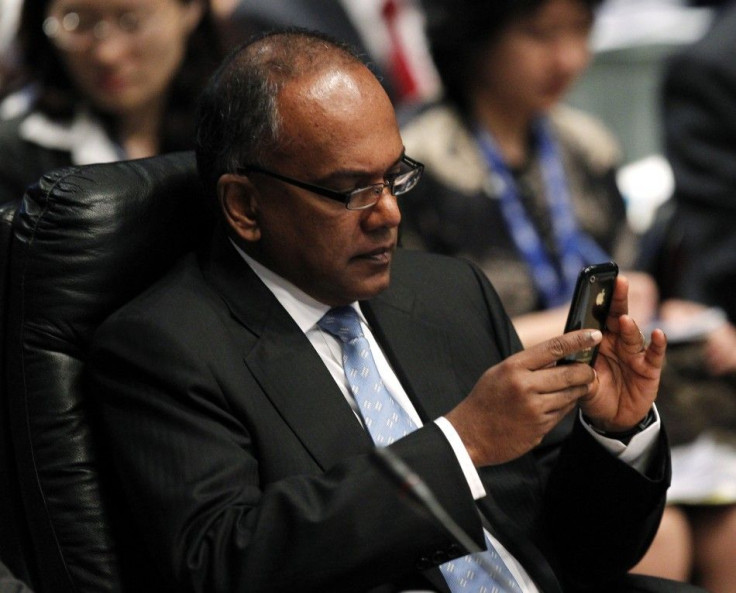Singapore Warns U.S. Against Anti-Chinese Rhetoric

The Foreign Minister of Singapore has warned the U.S. against the rising tide of anti-Chinese rhetoric coming out of Washington D.C., ahead of a visit to the U.S. by Chinese Vice President Xi Jinping’s next week.
Speaking at a conference for the Center for Strategic and International Studies' Singapore Conference in Washington on Wednesday, Singaporean Kasiviswanathan Shanmugam said: ''Domestic pressures in the U.S. and the demands of elections have resulted in some anti-China rhetoric in domestic debate. 'Americans should not underestimate the extent to which such rhetoric can spark reaction which can create a new and unintended reality for the region.”
He added: '' There is a tendency in the media sometimes to view political developments in win-lose sporting terms, and to view the U.S.’ emphasis on Asia as a means to contain China. Such rhetoric is a mistake on many levels. Any attempt by the U.S. to contain China will not work and will not be supported by most countries in the region. It is quite untenable to speak in terms of the ‘containment’ of China.”
While in the U.S. capital, Shanmugam met with Secretary of State Hilary Clinton and other senior officials. He plans to visit China next where he will meet with Beijing’s top power-brokers.
A tiny city-state, but an economic powerhouse and key hub, Singapore enjoys close relations with both the U.S. and China.
Shanmugam cited the United States growing presence in southeast Asia, which he described as an area of tremendous economic potential.
“There are compelling reasons for the U.S. to continue engaging Asia, in particular Southeast Asia,” he said.
“ASEAN [The Association of Southeast Asian Nations] has a population of approximately 600 million, larger than the [European Union] and has a bigger geographical footprint. ASEAN’s combined GDP of $1.8 trillion gives it a per capita income of $3,000. This is only a tenth of the EU’s but it also means that there is much room to grow.”
Shanmugam further noted that ASEAN is already the U.S.’ fourth largest overseas market; U.S. exports to ASEAN jumped by 27 percent in 2010 to mearly$86 billion; U.S. goods exported to ASEAN alone account for 440,000 jobs in the U.S; and that the U.S. is now the third largest investor in ASEAN.
Referring specifically to Singapore, the foreign minister pointed out that the city-state is the U.S.’ 13th biggest trade partner.
However, China is just as important to Singapore and Southeast Asia.
Indeed, according to Singapore government data, China was Singapore’s 2nd biggest trading partner in 2010 with total trade amounting to about $76.3 billion.
Shanmugam declared: “China with a population of 1.3 billion people is determined to progress in all fields and take its rightful place in the community of nations. It will succeed in that. Its people are bright and technologically savvy. The country and its people are not going to be contained. American policy makers understand and accept this. They understand the need for a cooperative engagement and have made clear that containment is not part of their strategy.”
The Singaporean foreign minister urged Washington and Beijing to cooperate and end the harsh language between them to the benefit of both parties.
“From Singapore’s perspective, the relationship between the U.S. and China is not a zero-sum game,” he said. “The rise of China does not imply the decline of the U.S. The U.S. is still and will remain for quite some time to come, the world's largest economy and the market of last resort for Asia. There is as yet no viable alternative to the U.S. dollar as the international reserve and trading currency. The world and Asia are big enough to accommodate a rising China and a reinvigorated U.S.”
He further noted: “In this regard, the U.S. and China should work to ensure that its relationship is one based on cooperation and not confrontation. It can be a symbiotic relationship. There will inevitably be competition. But it can be a competition that takes place within a stable framework, with both countries playing a constructive role in world and regional affairs.”
© Copyright IBTimes 2025. All rights reserved.





















